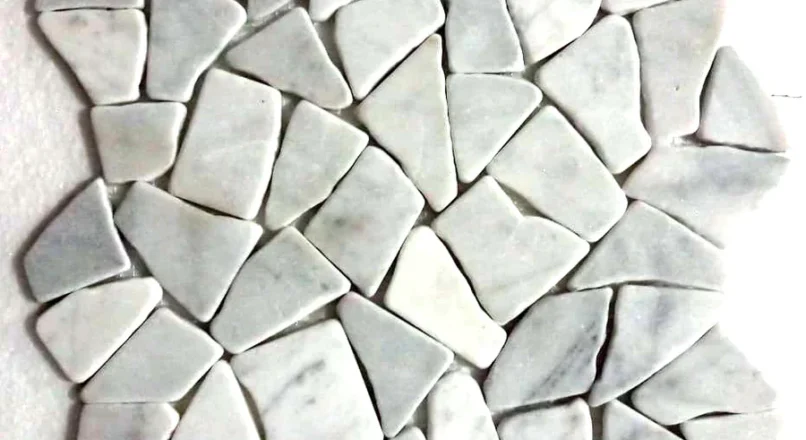
The Timeless Elegance of Natural Stone Tile Flooring
When it comes to choosing the perfect flooring for your home, few options rival the beauty and sophistication of natural stone tile. Whether you’re designing a modern space or aiming for a more classic, rustic look, natural stone tiles offer a versatile and durable solution. Let’s explore what makes natural stone tile so special, and weigh the pros and cons to help you decide if it’s the right choice for your home.
What is Natural Stone Tile?
Natural stone tiles are crafted from solid pieces of naturally occurring rock, such as marble, granite, slate, limestone, or travertine. Each piece is unique, with its own color patterns, veins, and textures, giving every room a one-of-a-kind appeal. Unlike manufactured tiles, natural stone is formed over thousands of years, meaning no two tiles are exactly alike.
Advantages of Natural Stone Tile Flooring
- Unmatched Aesthetic Appeal The most striking feature of natural stone tile flooring is its sheer beauty. From the soft elegance of marble to the earthy, textured feel of slate, each type of stone brings a unique charm to your living space. Because it’s a natural product, stone tiles have a timeless look that can elevate the design of any room.
- Exceptional Durability Stone tiles, particularly granite and slate, are known for their durability and longevity. Unlike other flooring materials that may wear out or need replacing over time, natural stone can last for decades if properly maintained. Its resilience makes it a great option for high-traffic areas such as kitchens, hallways, and foyers.
- Increases Property Value Natural stone flooring is often seen as a luxury item, and installing it can significantly increase the value of your property. It’s an investment that not only enhances the look of your home but can also pay off if you ever decide to sell.
- Versatility Available in various types, finishes, and sizes, natural stone tiles can suit a wide range of interior styles. Whether you want a polished, sleek look with marble or a more rustic feel with travertine, there’s a natural stone tile to match your vision.
- Eco-Friendly If you’re looking for sustainable materials, natural stone is an excellent choice. Since it’s a natural resource, its environmental impact is relatively low, especially when sourced responsibly.
Disadvantages of Natural Stone Tile Flooring
- High Cost One of the biggest drawbacks of natural stone tiles is their cost. High-quality stone, such as marble or granite, can be significantly more expensive than other flooring materials like ceramic or vinyl. In addition, the installation process can also add to the expense, as it often requires professional expertise.
- Requires Regular Maintenance Unlike some other flooring types, natural stone is porous and can absorb stains if not sealed properly. It requires regular sealing, especially in areas like kitchens or bathrooms where spills and moisture are common. Some stones, like marble, are also more prone to scratches and need extra care.
- Cold and Hard Underfoot While beautiful, natural stone tiles can feel cold and hard underfoot, particularly in colder climates. This can make walking barefoot uncomfortable, although underfloor heating can help mitigate this issue. Area rugs or mats can also soften the surface and add warmth to the room.
- Prone to Water Damage Some types of stone, such as limestone and marble, are more porous and can absorb water, making them less suitable for moisture-prone areas like bathrooms unless they are properly sealed. Even then, constant exposure to water can cause damage over time.
- Complex Installation Natural stone tiles are heavy and difficult to cut, making the installation process more labor-intensive compared to other types of flooring. This typically requires professional installation, which adds to the overall cost.
Types of Natural Stone Tile
Here are some of the most popular types of natural stone tiles:
- Marble: Known for its luxurious and polished look, marble is a classic choice. However, it’s also one of the more expensive and high-maintenance stones.
- Granite: Highly durable and scratch-resistant, granite is ideal for high-traffic areas. Its speckled appearance makes it a stylish and practical choice.
- Slate: Offering a more rustic and earthy look, slate is perfect for those who want texture and a natural feel. It’s also one of the more durable options.
- Travertine: This stone has a softer, matte finish and is often chosen for its warm, natural tones. It’s slightly more affordable but requires more maintenance due to its porous nature.
- Limestone: Often used for its light color and elegant appearance, limestone is softer than other stones, making it more susceptible to scratches and dents.
Conclusion
Natural stone tile flooring is a stunning and long-lasting option that brings a touch of luxury and elegance to any home. While it comes with a higher price tag and maintenance needs, the unique beauty, durability, and timeless appeal of natural stone make it a worthwhile investment. Whether you choose marble for a sleek, polished look, or slate for a more rugged, natural feel, the right stone tile can transform your space into a work of art.
Considering the pros and cons, natural stone tiles are best suited for homeowners who prioritize aesthetics and are willing to invest in long-term durability and maintenance. With proper care, this flooring option can remain beautiful and functional for years to come.

Leave a reply